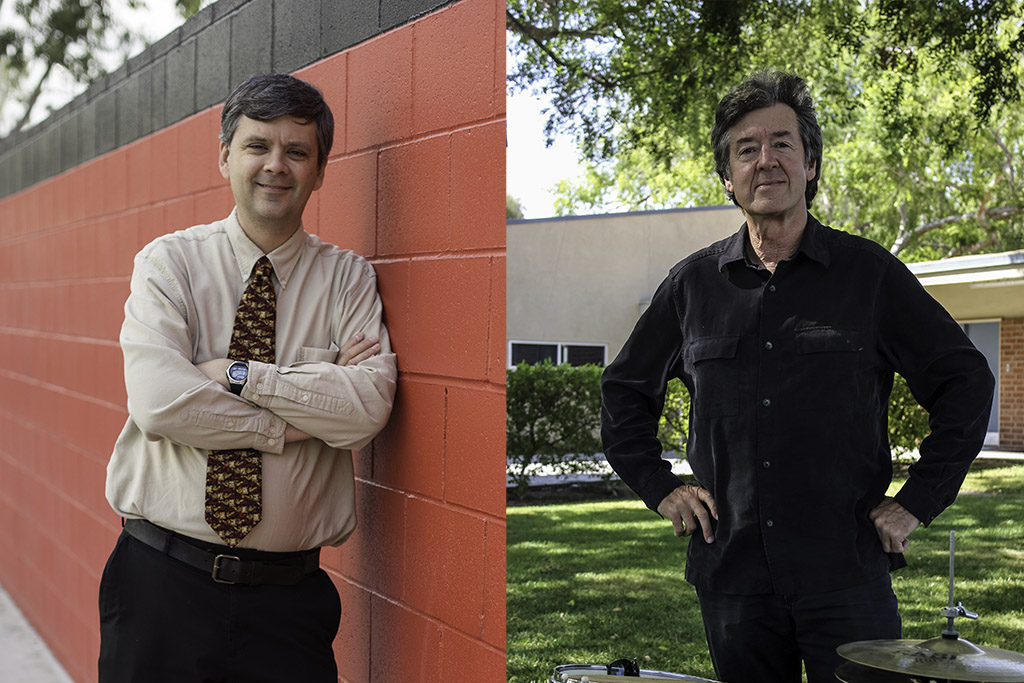
High school graduation is a significant move into adulthood. Receiving a diploma detaches us from childhood activities such as ice cream trips with our parents and swimming in the backyard pool with our siblings. But what about college graduation? What sort of milestone does that represent when we have already been separated from so much?
POST GRADUATION
Graduating from college essentially drops you into the deep end of life. Some of our dreams have changed and the ones we have decided to keep are hopefully coming true. Everyone has to start somewhere, including Biola professors who have built successful careers from either unconventional or typical post-graduation jobs.
Associate professor of English Paul Buchanan took his first post-graduation job at a psychiatric hospital.
“My undergrad degree was in psychology and that’s what you did with a psych degree,” said Buchanan. “It was intense. It was mostly children and adolescents with drug and conduct problems.”
It wasn’t the easiest post-graduation job. Buchanan worked there for eight years as he was studying at grad school.
“There was a lot of burnout. I was there longer than anybody I knew,” said Buchanan.
CAREER PURSUIT
However, the job did not have a lot to do with his later career, Buchanan remarked. While working at the hospital, Buchanan studied philosophy, which he thought he would teach. Eventually he began writing, and now he has been published as an author of Christian children’s fiction as well as in literary journals and magazines.
“Teaching English was not anything I planned to do, it just sort of happened,” Buchanan said.
Although he did not pursue psychology for his later career, Buchanan did not walk away from his job at the psychiatric hospital empty-handed.
“[The job] did enable me to not get flustered when people go crazy and yell at you. So I stay pretty calm in hectic situations,” Buchanan said.
TAKING RISKS
However, some post-graduation jobs do reflect their future careers. Associate professor of journalism Stewart Oleson began his TV and radio career while still in college.
“I was a radio/TV reporter for WHBF in Rock Island, IL — the CBS affiliate for the Quad Cities,” Oleson said over email. “I also filled in as a DJ on the overnight shifts … got to play my favorite music.”
Oleson received his job by simply walking into WHBF, the CBS affiliate for the Quad Cities, and asking to see the news director. Since then, Oleson has experienced multiple successes.
“Take risks, don't be afraid to ask questions, build a solid skill set to make you marketable, be respectful, and never burn a bridge in the business,” said Oleson. “You live life once on this earth. Do yourself a favor … and go for it! If you don't, you only have yourself to blame.”
GAINING EXPERIENCE
Professor Matthew Weathers of the math department found a post-graduate job offer by the very same company at which he was interning, though he enjoyed his first job mostly for the paycheck.
“I was mainly looking for something that paid the bills,” Weathers said. “But it was definitely in my field because I studied math and computer science and this job was doing mathematical programming for a refrigeration company.”
Although some job offers may not seem like the ideal post-grad opportunity, Weathers said the experience will teach you valuable lessons, regardless of the job title, .
“Any kind of job gives you experience in working … you can apply that experience to any other kind of job,” Weathers said. “Things like learning to be on time, work well in an office and those kinds of things.”
The key to transitioning into a new job is to realize that your life will be different than how it was in college and you must respond by having an attitude of anticipation as you roll with the punches, Weathers said.







